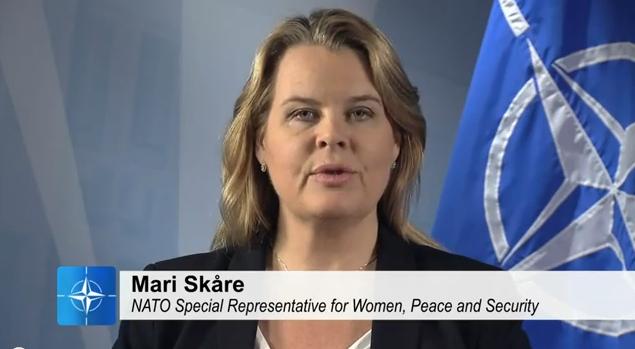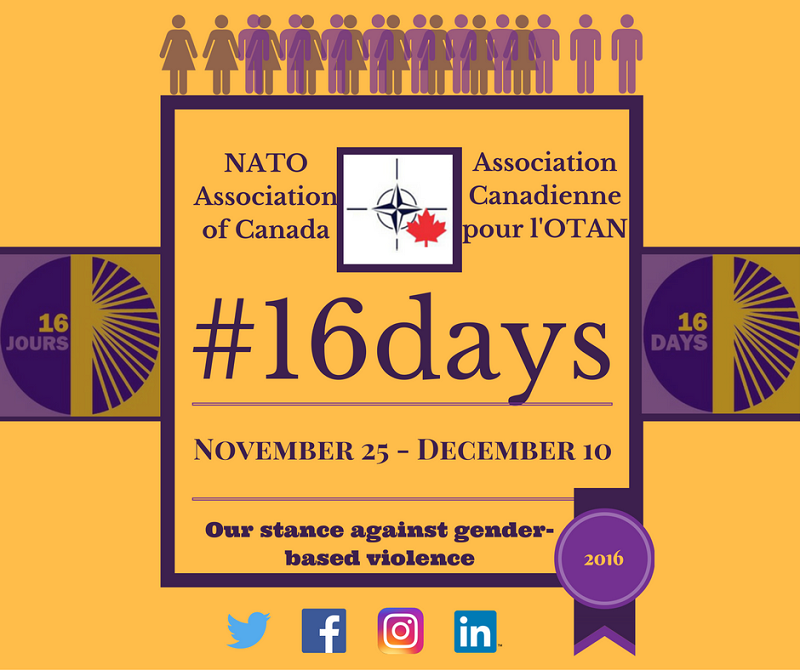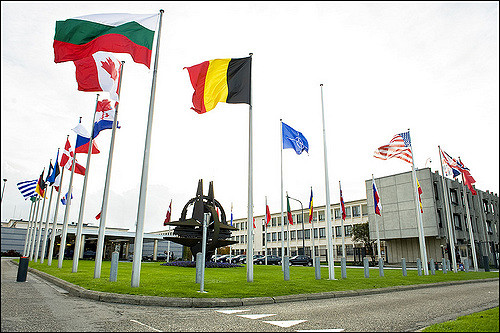On 4 March 2014, Ambassador Sebastino Cardi, the Permanent Representative for Italy to the United Nations, hosted a forum between the UN and NATO. The forum was aimed at exploring ways to further integrate gender perspectives in crisis management and peacekeeping operations. The forum took place one week prior to International Women’s Day and less than one month away from presidential elections in Afghanistan (Afghanistan is one of the two locations where NATO has currently applied UNSCR 1325, which recognizes the impact war has on women and children, to its peacekeeping efforts). Despite adopting UNSCR1325, the department for women and security in NATO has a long way to go before achieving gender equality. The failures with the implementation of UNSCR1325 are showcased in a 2013 review by the Norwegian government on women and security in NATO. The review demonstrates the staff’s lack of knowledge regarding gender, in addition to job vacancies for specifically gendered peacekeeping positions.
When I first approached the news update on the NATO website regarding the forum on 4 March, I was surprised by elements of a speech by Mari Skåre. Skåre, Special Representative for Women, Peace and Security identified specific problems regarding the implementation of 1325 within NATO and brought these issues into a public conversation. This article will review the three areas that Skåre identifies and use Afghanistan as a case study for further consideration of these points. While I do not disagree with Skåre, I want to highlight some of the difficulties facing the successful enactment of the resolution. Afghanistan provides a pressing example, as addressing women’s issues will be an important priority in the upcoming Afghanistan elections. The withdrawal of troops after the elections puts women in a vulnerable position, and therefore, there needs to be more active implementation.
[captionpix align=”left” theme=”elegant” width=”300″ imgsrc=”http://natoassociation.ca/wp-content/uploads/2014/03/str-091911-larc.jpg”]
Three Approaches to the Implementation of UNSCR1325
Knowledge: NATO HQ staff and ISAF staff and troops lack the required and necessary knowledge to successfully implement NATO’s UNSCR1325. There is a lack of basic gender literacy in the leadership and this is why it is so important to include women in decision making processes. On this point, Skåre notes that “in NATO there is a lack of knowledge about policies, action plans and directives.” Her steps to improve this are to “use education, training, and exercises which will help continue to raise awareness.”
The problem of inadequate gender education results from a lack of training. In the NATO implementation of UNSCR1325 2013 review, it was identified that many troops and generals were not taught about gender awareness. They did not know the importance of implementing gender considerations into their peacekeeping initiatives. Understanding what gender means in various contexts is crucial for the enactment of UNSCR1324 on a large scale. Gender education should be mandatory for all existing and incoming NATO troops, and should be taken seriously at an institutional level.
Institutionalization: Skåre identified the second challenge as a lack of institutionalization. The lack of gender awareness directly relates to the lack of institutionalization. For instance, Skåre stated that “women’s situation and roles in peace and conflict still rests in the margins of the agendas on international peace and security, but these are not marginal issues, these are core issues if we are going to make headway.”
It is evident both from the 2013 Norwegian review of NATO’s implementation of UNSCR1325 and Skåre’s review that Women in Security and NATO’s implementation of UNSCR1325 need to be more institutionalized. While NATO offers a few case studies on their website regarding increased economic support for women in war-torn countries, more efforts need to be in place for monitoring targets and results.
Further, better services and more efficient support can have greater reach if its practices are part of a larger institution. For instance, if NATO created a job description for its gender advisors that would be consistent across different levels of their organization it could mainstream approaches to gender issues in crisis situations. While NATO’s gender advisers perform a variety of duties, a clearly defined set of roles, duties, and responsibilities would be a strategic move on NATO’s part.
National Delivery: NATO encourages all its member countries to take responsibility for implementing UNSCR1325 and related resolutions. However, Skåre identified national delivery as a potential area of improvement for the successful implementation of UNSCR1325. Skåre noted that “the provision of competent troops, experts on gender, women and armed forces, and female candidates for leading positions depends entirely on national discussion.” Of course, NATO cannot prescribe national security policies for sovereign nations, but Skåre insists that NATO can change its best practices. Skåre’s comments on national delivery suggests the importance of national compliance and cooperation in the effective implementation of UNSCR1325.
[captionpix align=”left” theme=”elegant” width=”300″ imgsrc=”http://natoassociation.ca/wp-content/uploads/2014/03/WomensRT.jpg” captiontext=”Shella Samimi, Member of Afghanistan High Peace Council”]
The Case of Afghanistan
NATO’s implementation of UNSCR1325 is conducted in Afghanistan by the ISAF. Canada’s troops departed Afghanistan in March 2014 and there has been much concern about the increasing presence of Taliban in the absence of international powers. On 14 March 2014, the Taliban congratulated Afghan fighters with the following message: “Your sacrifices have brought us freedom. The beacons of your blood have lit the way to independence. Celebrate the victory and freedom from the Canadians.” The possibility of the Taliban resuming political power in Afghanistan has many Afghan women and NGOs concerned about the future of gender equality in the region. On 5 February 2014, one of the top United Nations Officials said that women’s “level of participation in Presidential and Provincial Council elections on 5 April 2014 will be a ‘key measure of success of the polls.’” The threat the Taliban poses for the future of women is very real: evidence on violence against women shows that in the last presidential election in 2009, the Taliban targeted and killed women in public roles and even attacked women who went to vote. In mid March 2014, the Taliban released a statement in which they threatened to attack Afghans who participated in the upcoming 5 April 2014 election.
The improvements that Skåre insists on could help ISAF better support women in Afghanistan. NATO would be able to implement its crisis management for women better if it could better assess the data that was previously collected. With Canadian troops, and other national troops leaving the region, it is important that NATO addresses these issues. When troops do leave, NATO cannot oversee national delivery in these countries. Moreover, the visibility and health of any institutions set up for protection of women also becomes more vulnerable in the absence of western troops. While NATO troops will be staying in the region, it is crucial that positions relating to gender in peacekeeping missions be filled and the troops be well educated.




